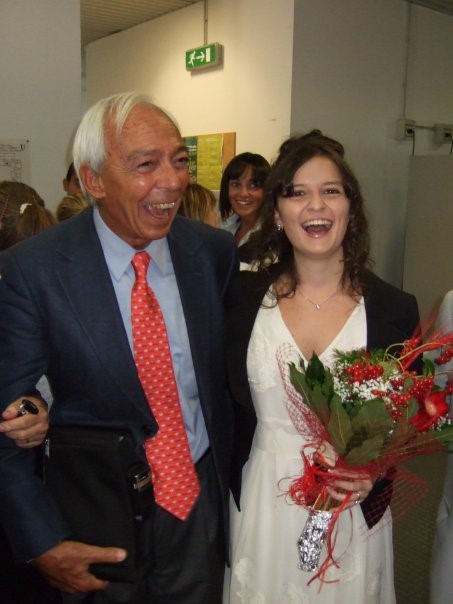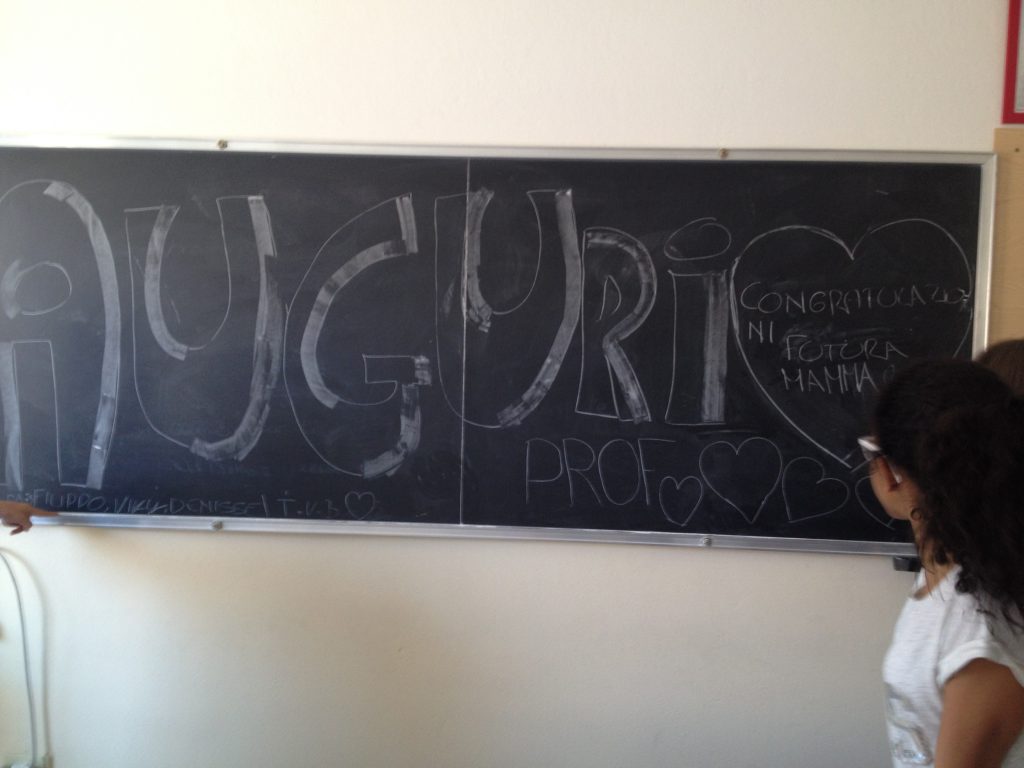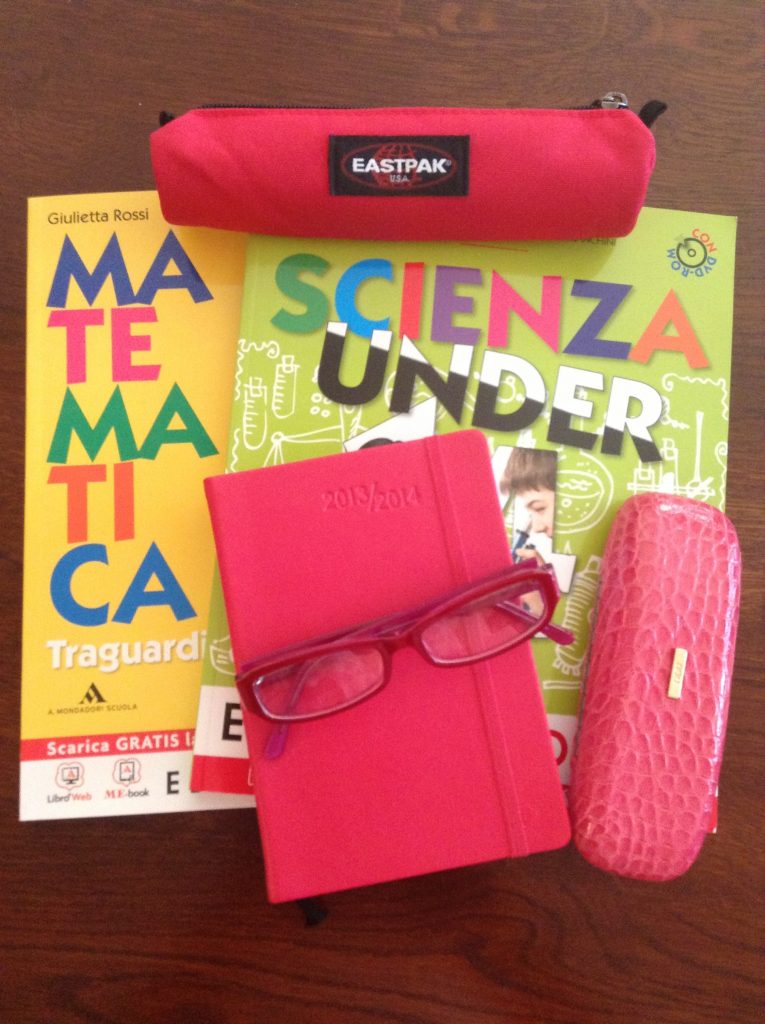Gabriella Pocalana
September 24, 2021 · 5 min read
Ex Novo – Science behind the scenes
“Ex Novo – Science behind the scenes” is a series of articles born within ISA’s blog in collaboration with the Collegio Nuovo – Fondazione Sandra e Enea Mattei in Pavia, whose students community is marked by a strong presence of women in science. Science is research, long hours to carry out experiments in the laboratory or in the field, but science is also communication, grant writing, entrepreneurship, administration, teaching, project management, leadership and many other facets. We will post articles, interviews and short stories on these multiple aspects of the scientific endeavour. Should you like to contribute with your experience, do not hesitate to get in touch with Michela, ISA’s Head and Collegio Nuovo Alumna, here: michela.bertero@crg.eu.
Never stop becoming
There has been a lot of talk lately in Italy about the poor results in mathematics of our students, for example by referring to the INVALSI tests or the international PISA tests. Furthermore, mathematics is viewed with awe and, at times, fear and dislike, even by many adults.
The phrase “I am not good at math”, or “I never liked math” are so widespread that we are not surprised when we hear them. Numbers are often considered cold enemies, hostile and sometimes cruel, most of the time incomprehensible. Consistently, the math teacher, in the collective imagination, is the coldest, most unpleasant and rigid one, at least regarding secondary schools.
Nevertheless, not being familiar with mathematics can create inconvenience on many levels, even for those who do not use it daily in their profession. Think about when you are dealing with a bank, with an investment proposal, with the choice of a mortgage or even, simply, with the choice of a phone rate plan. Think about when you listen to a newscast and are shown graphs representing data. In times of pandemic we have been exposed to numbers and graphs on a daily basis, but how well are we able to understand what is being presented? To what extent do journalists themselves, sometimes, provide misleading interpretations of the data? Can we only be naive and passive listeners or are we able to understand and interpret a representation of data, or a mathematical model? We cannot fail to recognize that mathematical education is a key element in a modern society and this awareness come together with the central role of the school in this regard.
It was also with this belief that, 8 years ago, I left my job (stable and well-paid) in a multinational in the field of IT consulting and I decided to venture into the world of mathematics teaching at school. Honestly speaking, behind such radical choices there are, usually, not only rational motivations, but, above all, profound reasons regarding what we want to do with our life and who we want to be. To quote no less than a first lady, I feel that: “Teaching is not what I do, it’s who I am”. In my previous job, I missed books, math, blackboards, desks … in a word: school. So, after a master degree in mathematics obtained in 2008, as a student of Collegio Nuovo, I started studying again in 2013, to obtain the qualification to teach math in secondary schools.

Figure 1. Gabriella after defending her University´s thesis with Prof. Franco Brezzi.
The experience of living at the Collegio Nuovo had allowed me to meet so many different people, from all over Italy and abroad, who were about to embark on promising careers, all united by a love for studying. And the love of studying is learned at school, this is the thought that I have always carried with me in the schools where I worked.
When I entered the classroom for the first time, on the other side of the teacher’s desk, it was a great emotion, but what I did not expect was the great charge of affection that the pupils were able to transmit to me. I was surprised by what they gave me, by their willingness to communicate, to have a human relationship, even to hug me or give me small gifts.

Figure 2. Wishes for Gabriella´s first son from her students.
From within this world, I also understood that the challenge of teaching mathematics is really difficult, especially in lower secondary schools, where very different students are all grouped together in the same class. There are students who do not speak and do not understand our language well, there are students from difficult family backgrounds, who bring to the class a baggage of suffering and anxiety that they do not know how to manage. There are students with learning difficulties of different kinds and there are students who will undertake excellent school paths and require adequate preparation. Furthermore, in this difficult context, in Italy a real initial training course for secondary school teachers does not exist, as has been reminded us recently on the pages of Corriere della Sera by Prof. Pietro Di Martino, full professor of mathematics education at the University of Pisa [1].
After six years in secondary schools, I decided to take on a new challenge, and here I am, after almost 13 years from my graduation, attending a PhD in mathematics education. The choice stems from the awareness that, if as a math teacher I could have an impact on my students, by engaging in educational research and by collaborating in teacher professional developing programs, I can have an impact on many more classes of present and future students.
Therefore, I started this new path, involving studying and attending conferences, international meetings and teacher professional development programs, which are the focus of my research interests. I have to admit that I miss walking into the classroom every morning, I miss my students, I miss their faces and their smiles, but I have the awareness that I am working for them. As claimed by an important researcher in the field of mathematics education, Anna Sfard: “There is nothing more practical than a good theory”.
This is a moment of great confusion for teachers, in which it is not clear what is required of them.
Nowadays, teachers are subjected to conflicting tensions and to the most disparate requests, without being provided with the tools to deal with them in the best possible way. So, I believe that there is nothing more important than stopping and reflecting, taking the time to think in what direction we want the school to go, what is the sense of teaching mathematics, why we do it, what goals we want to pursue, always bearing in mind the present and future life of our students.
This is what I am doing now, I am taking time for my great passions: reading, studying, reflecting, talking about school and math and thinking about the best for our students, always with an optimistic view, because I believe that it’s not possible to stay in front of the students with a negative and pessimistic view. Honestly, I have never put up with those who speak ill of the “new generations”, also because the “new generations” are the result of our choices, they are our responsibility and we have the duty to build the best for them. This effort should start from the school, believing firmly in the enormous potential of young minds and putting aside any defeatist temptation. If there is hope for our country and for the whole world, it comes from the youngsters!
I don’t know exactly what awaits me in the future, but I have one certainty: that I will never stop studying, I will never stop trying to grow professionally and I will never stop loving school and mathematics education.

Figure 3. Never stop learning and becoming
[1] https://www.corriere.it/scuola/medie/21_agosto_30/emergenza-matematica-basta-lamentarsi-politica-intervenga-formazione-iniziale-prof-efaf5030-0975-11ec-9dd3-3cdc96ff46f7.shtml